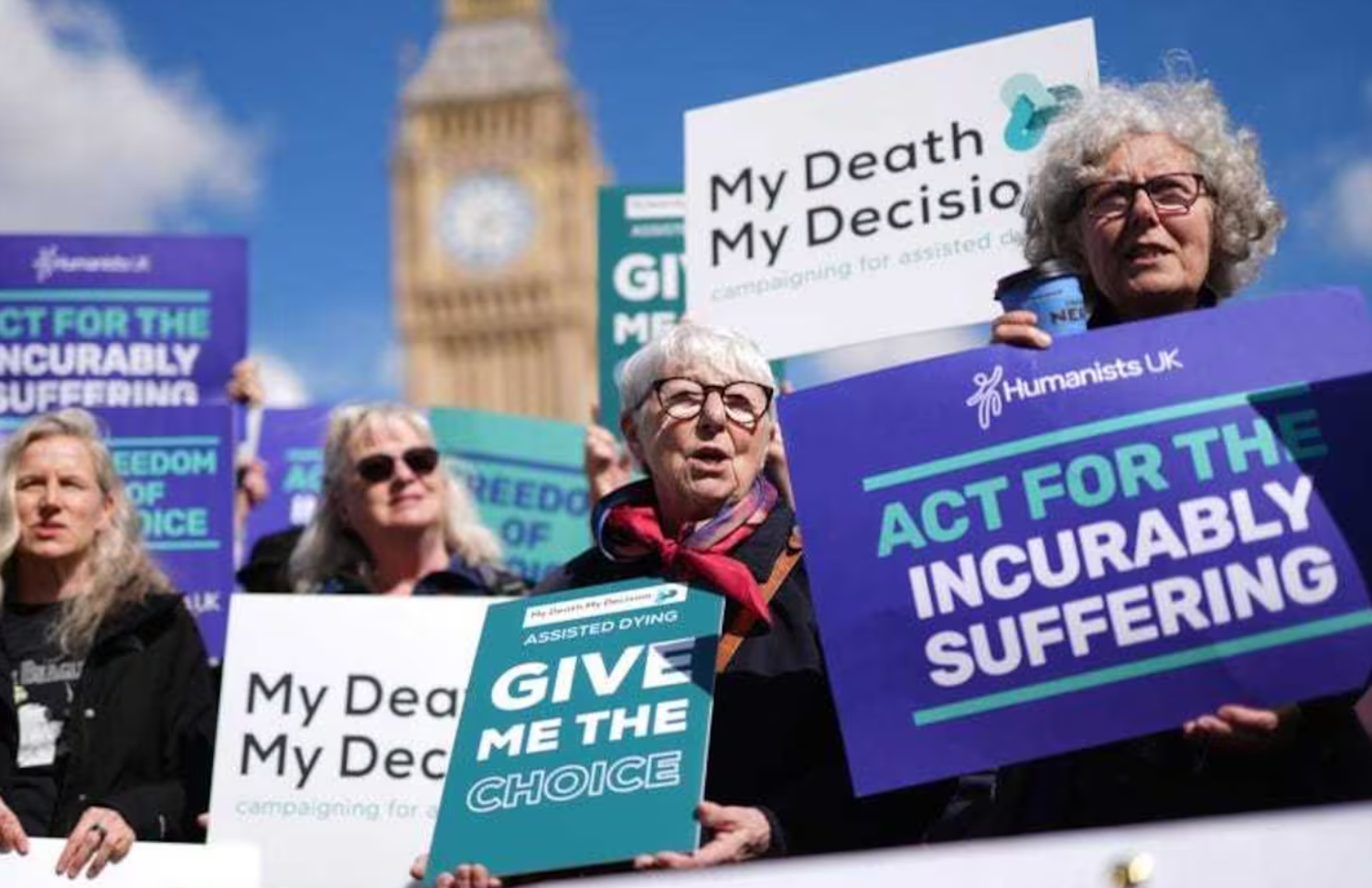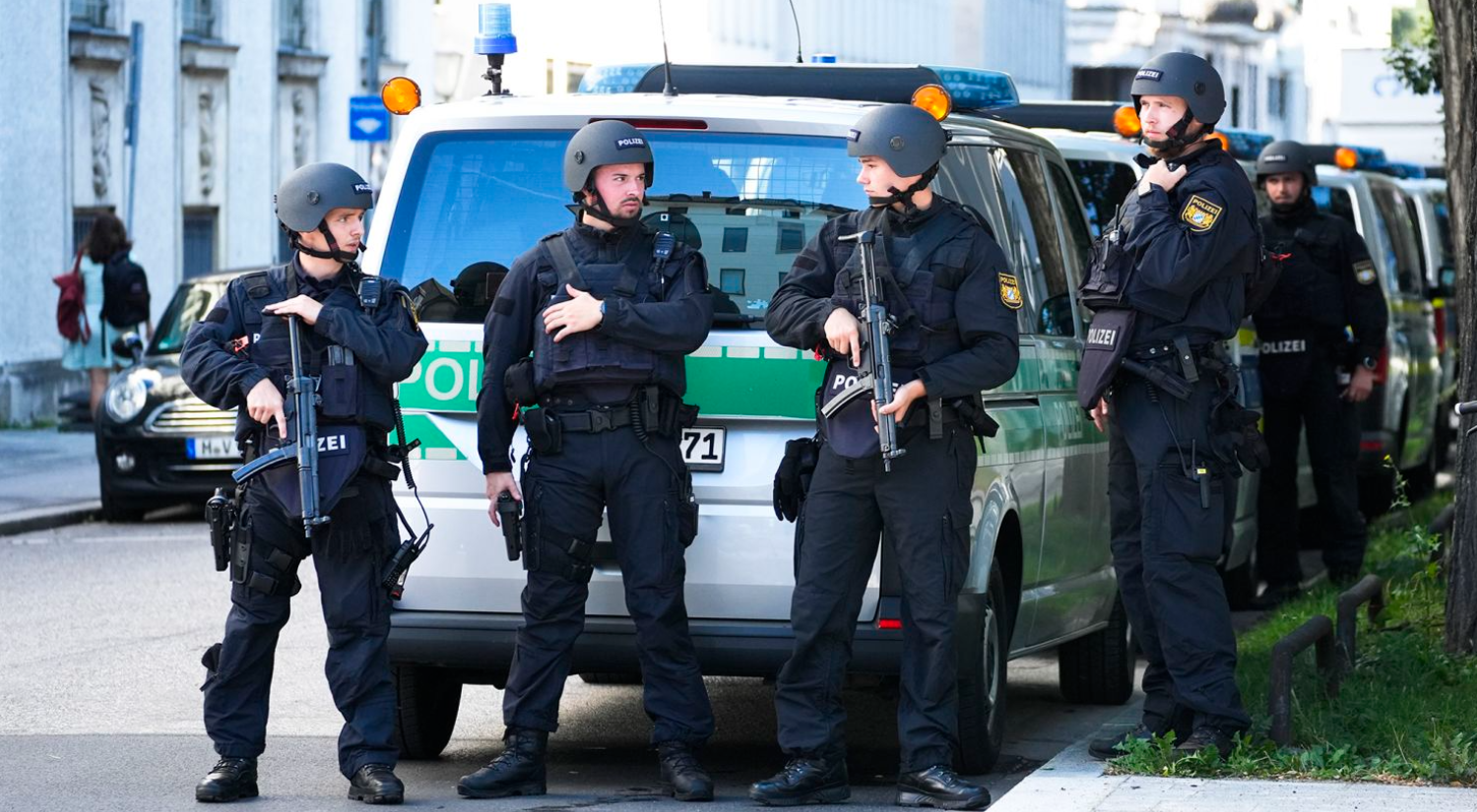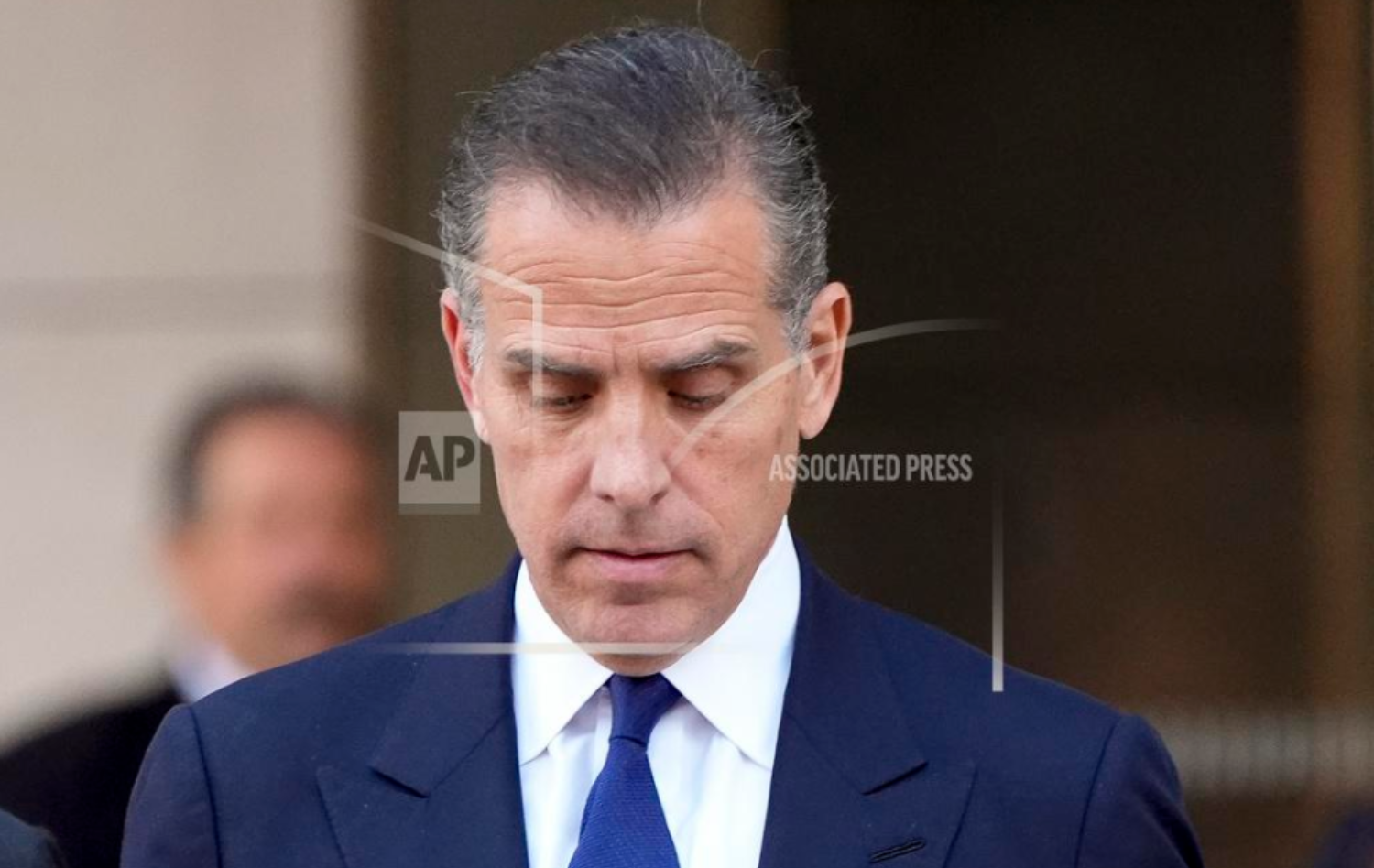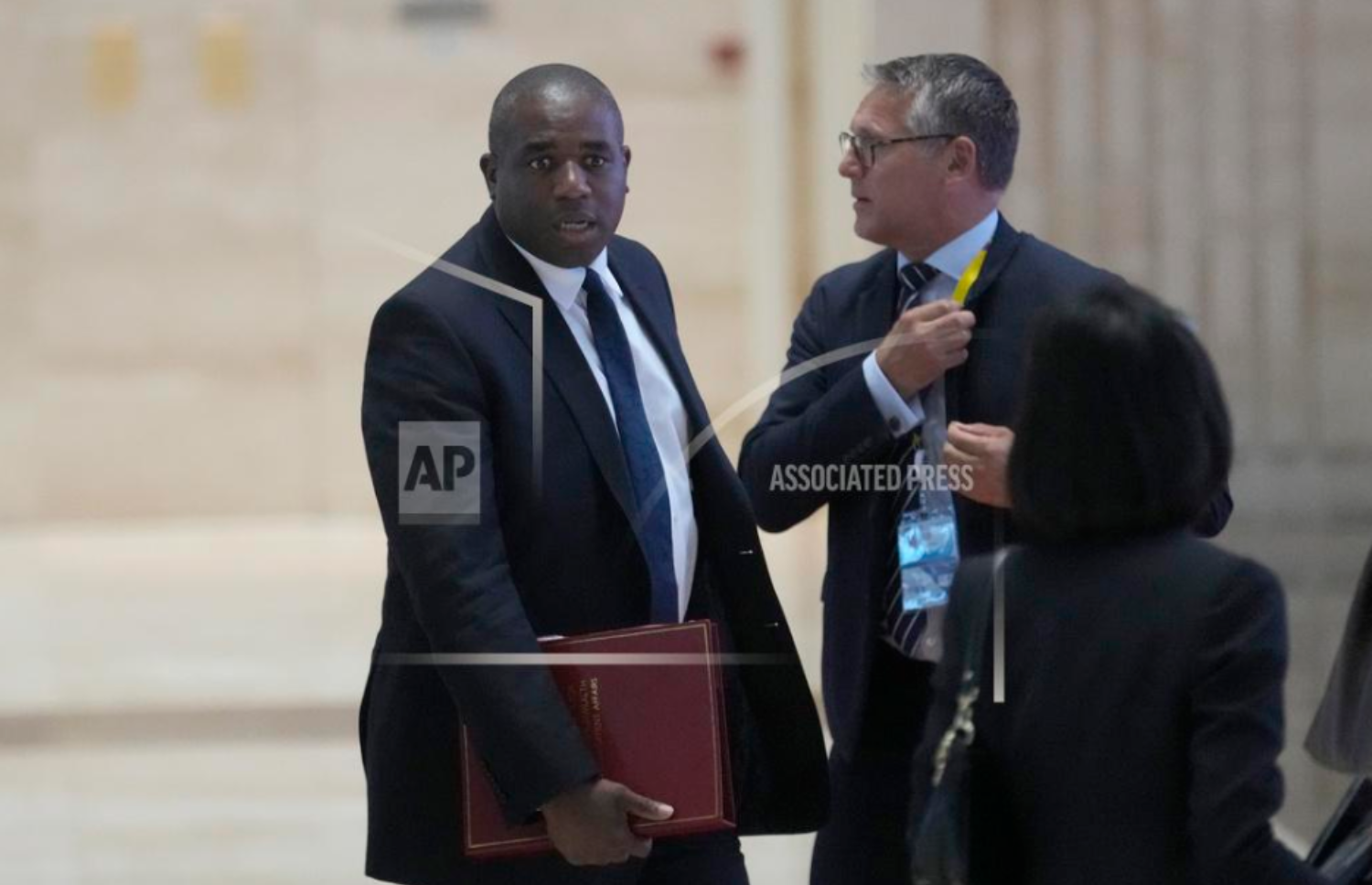-
Posts
10,101 -
Joined
-
Last visited
Content Type
Events
Forums
Downloads
Quizzes
Gallery
Blogs
Everything posted by Social Media
-
Reports have emerged that North Korea may have executed multiple officials following the severe flooding in July that caused catastrophic damage, destroying thousands of homes and leaving up to 1,500 people either dead or missing. According to South Korea’s national intelligence service, the regime in Pyongyang has reportedly taken drastic action, allegedly carrying out executions of officials deemed responsible for the destruction caused by the floods. The intelligence service stated that it has "detected signs" that Kim Jong-un, North Korea's leader, ordered the execution of 20 to 30 officials. These officials were accused of corruption and dereliction of duty in their handling of the disaster. The South Korean news agency Yonhap reported that during an emergency meeting of the ruling party's politburo, Kim Jong-un had vowed to "strictly punish" those responsible for the damage. The floods, which were triggered by heavy rains, devastated the northern provinces of Jagang and North Pyongan, destroying thousands of hectares of farmland and displacing countless residents. Despite the severity of the situation, North Korean state media has not mentioned any executions, and the reports have not been independently verified. However, TV Chosun, another South Korean outlet, cited an unnamed North Korean official who confirmed that "around 20 to 30 leaders were charged with corruption and dereliction of duty. They have been sentenced to capital punishment." Among those reportedly executed was Kang Pong-hun, the former chief secretary of the Jagang provincial committee of the ruling party. South Korean media also reported that other senior officials, including the public security minister, Ri Thae-sop, were dismissed during the politburo meeting in late July. The situation underscores the brutal measures the North Korean regime is willing to take in response to crises, even when natural disasters are involved. Amidst the reports of executions, Kim Jong-un was seen personally overseeing flood relief efforts. State media released images of him aboard a dinghy in Sinuiju and Uiju County in North Pyongan province, directing an operation that reportedly rescued around 5,000 people trapped by the floodwaters using military helicopters. Despite these efforts, the devastation has left many in a dire situation. A resident from Ryanggang province told Radio Free Asia that the flooding had created a "life-threatening" situation for those in the affected areas. North Korea's vulnerability to natural disasters is exacerbated by its weak infrastructure and its reluctance to accept international aid. The country has a long history of suffering from severe weather events, which have had devastating consequences. In 2012, a rainstorm killed an estimated 169 people, and the country experienced a famine from 1994 to 1998, partly caused by a series of floods and droughts that resulted in the deaths of hundreds of thousands. More recently, in 2016, international aid agencies appealed for millions of dollars in relief funds after typhoon-triggered floods in North Korea's remote northeast left 70,000 people homeless and 600,000 others in desperate need of assistance. The current reports of executions highlight the extreme measures the North Korean government may take in response to internal failures, even as the country continues to grapple with the aftermath of natural disasters that threaten the lives and livelihoods of its people. Credit: The Guardian 2024-09-07 Get the ASEAN NOW daily NEWSLETTER - Click HERE to subscribe
-
The UK government is exploring the possibility of sending offenders to Estonia to address the severe overcrowding in British prisons. According to Sky News, this proposal is one of several options under consideration as the prison system in England and Wales faces extreme pressure, with only around 1,000 spaces reportedly remaining. Justice Secretary Shabana Mahmood has repeatedly warned that the escalating overcrowding crisis could undermine law and order unless immediate action is taken to reduce the strain on the prison system. The problem has been exacerbated in recent months, particularly following riots triggered by the Southport stabbings. Last month, it was reported that there were just 100 spare spaces left in male prisons across the region, bringing the system dangerously close to full capacity. To alleviate the crisis, the government has already implemented several controversial measures, including the early release of prisoners who have served just 40% of their sentences. Typically, offenders in England and Wales, except for the most serious, are released on licence after serving 50% of their sentences. However, this threshold has now been reduced in a bid to free up more prison space. Magistrates have also been advised to consider delaying sentencing for certain offenders to help manage the overcrowding issue. A Ministry of Justice spokesperson stated, “The new government inherited a justice system in crisis, with prisons on the point of collapse. We will continue to investigate all viable options to increase the number of places in the prisons estate so we can keep locking up dangerous criminals and protect the public.” The concept of sending UK prisoners to Estonia was first proposed by former Justice Secretary Alex Chalk. At last year's Conservative Party conference, Chalk revealed that the previous government, under Prime Minister Rishi Sunak, had initiated exploratory talks with several European countries to potentially rent prison space abroad. The proposal stipulated that any agreements with foreign prisons would need to meet UK standards in terms of facilities and rehabilitation programs. This approach mirrors actions taken by Belgium and Norway, which have rented prison space in the Netherlands over the past decade. In her first address as Justice Secretary, Mahmood criticized the previous administration, accusing Sunak and his team of failing to act on clear warnings about the state of the prison system. “Rishi Sunak and his gang in Number 10 were too weak to heed the warning signs that were flashing,” she said. According to leaked documents, more than 10,000 prisoners were released early between October last year and June this year under the previous government’s policies, highlighting the ongoing struggle to manage the prison population. The current administration continues to explore all possible solutions, including the controversial option of relocating prisoners abroad, as it seeks to address one of the most pressing issues facing the UK justice system today. Credit: Sky News 2024-09-07 Get the ASEAN NOW daily NEWSLETTER - Click HERE to subscribe
-

Simple Nasal Drops Cut Cold Duration by 2 Days in Children
Social Media posted a topic in World News
A new study by UK researchers has found that hypertonic saline nasal drops can significantly reduce the duration of cold symptoms in children, cutting the illness short by two days. This inexpensive and straightforward method not only helps kids recover faster but also lowers the risk of spreading the virus to family members. “Children have up to 10 to 12 upper respiratory tract infections, what we refer to as colds, per year, which have a big impact on them and their families,” said Steve Cunningham, a professor at the University of Edinburgh. “There are medicines to improve symptoms, such as paracetamol and ibuprofen, but no treatments that can make a cold get better quicker.” In the study, researchers demonstrated to parents how to make and administer saltwater drops to their children's noses. Each child received three drops in each nostril at least four times a day until their symptoms subsided. The study included 150 children who received the saline drops and 151 who continued with their usual cold treatments. “We found that children using salt water nose drops had cold symptoms for an average of six days where those with usual care had symptoms for eight days,” Cunningham explained. “The children receiving salt water nose drops also needed fewer medicines during their illness.” The study also revealed that families using the nasal drops experienced a lower transmission rate of colds, with only 46% of these households reporting additional family members catching the virus, compared to 61% in households that followed typical treatment methods. The nasal drops were well-received by parents, with 82% reporting that the drops helped their child recover quickly, and 81% expressing their willingness to use them in the future. This positive feedback suggests a practical and effective approach to managing common colds in children. These findings will soon be presented at the European Respiratory Society Congress in Vienna, Austria. Chief investigator Sandeep Ramalingam, a consultant virologist, noted that using saltwater solutions to treat colds is a common practice in South Asia, highlighting the simplicity and accessibility of this approach. Cunningham explained the science behind the effectiveness of the nasal drops, stating that the chloride in the saline solution helps the cells lining the respiratory tract produce hypochlorous acid, a natural defense against viruses. “By giving extra chloride to the lining cells, this helps the cells produce more hypochlorous acid, which helps suppress viral replication, reducing the length of the virus infection, and therefore the duration of symptoms,” Cunningham said. This study offers hope for parents seeking a safe, affordable, and efficient way to manage colds in children, potentially changing the way we approach this common illness in the future. Credit: Sky News 2024-09-07 Get the ASEAN NOW daily NEWSLETTER - Click HERE to subscribe -
White House Condemns Tucker Carlson’s Interview with Holocaust Denier as “Disgusting and Sadistic Insult The Biden administration has strongly condemned far-right commentator Tucker Carlson after he hosted an interview with Darryl Cooper, a podcaster who suggested that the Holocaust was an unintended consequence rather than the deliberate, systematic extermination of Jews by Nazi Germany. The White House described the interview as "a disgusting and sadistic insult to all Americans." On Thursday, the White House entered the fray with a statement released through CNN. Senior Deputy Press Secretary Andrew Bates denounced the interview, saying, "Giving a microphone to a Holocaust denier who spreads Nazi propaganda is a disgusting and sadistic insult to all Americans, to the memory of the over 6 million Jews who were genocidally murdered by Adolf Hitler, to the service of the millions of Americans who fought to defeat Nazism, and to every subsequent victim of Antisemitism." Bates also refuted Cooper's claim about Churchill, stating, "Hitler was one of the most evil figures in human history and the ‘chief villain’ of World War II, full stop." The administration emphasized that "trafficking in this moral rot is unacceptable at any time, let alone less than one year after the deadliest massacre perpetrated against the Jewish people since the Holocaust and at a time when the cancer of Antisemitism is growing all over the world." Carlson responded to the White House’s condemnation with sharp criticism, accusing the administration of warmongering. “The fact that these lunatics have used the Churchill myth to bring our country closer to nuclear war than at any moment in history disgusts me, and should terrify every American,” Carlson stated in a text message to CNN. “They’re warmonger freaks. They don’t get the moral high ground.” Numerous commentators have highlighted inaccuracies in Cooper’s statements, particularly his assertion that the Nazis “went in with no plan” for housing millions of prisoners of war, which resulted in millions of deaths. Jonathan Greenblatt, CEO of the Anti-Defamation League, condemned the interview as “truly revolting.” Greenblatt clarified, “The Nazis’ extensive network of concentration, forced labor, and death camps was part of Hitler’s deliberate plan to exterminate the Jewish people. Inmates didn’t just ‘end up dead’ and they did not ‘surrender.’” Since being dismissed from Fox News a year and a half ago, Carlson has continued to stir controversy through his online videos and public appearances. Despite the outrage surrounding his latest interview, Carlson remains a prominent figure within the Republican Party. He was given a prime time speaking slot at the party’s convention in Milwaukee last month and is set to embark on a live speaking tour across the country this fall. Donald Trump’s vice presidential nominee, JD Vance, is expected to join Carlson at an event in Hershey, Pennsylvania, later this month. However, the Cooper interview has raised questions among conservative columnists about whether Vance will continue to associate with Carlson. In response, the Vance campaign issued a statement distancing the senator from the interview, stating, "Senator Vance doesn’t believe in guilt-by-association cancel culture but he obviously does not share the views of the guest interviewed by Tucker Carlson." Credit: CNN 2024-09-07 Get the ASEAN NOW daily NEWSLETTER - Click HERE to subscribe
-
Home Secretary Yvette Cooper has emphasized the "moral imperative" to dismantle the criminal networks facilitating dangerous small boat crossings to the UK. Her statement comes ahead of a critical summit involving ministers, intelligence agencies, and law enforcement officials. The meeting follows a tragic incident in which 12 people, including six children and a pregnant woman, lost their lives attempting to cross the English Channel—the deadliest such event in 2024. The devastating incident has brought renewed scrutiny to the government’s strategy for addressing the crisis. Conservative shadow home secretary James Cleverly criticized the government, stating that merely "talking about 'smashing the gangs'" is insufficient given the serious real-life consequences. Yvette Cooper echoed the urgency of the situation, describing how people had been "packed into an unsafe boat which literally collapsed in the water." She reiterated the government's commitment to ensuring that these networks are dismantled and brought to justice. To date, more than 21,000 people have made the perilous crossing this year—slightly more than the same period last year, but still 20% lower than in 2022. Following the scrapping of the previous Conservative government's Rwanda plan, which aimed to curb the number of crossings, the current Labour government faces mounting pressure to prove the effectiveness of its approach. The government has vowed to focus on disrupting smuggling gangs, with Mr. Cleverly advocating for the re-establishment of the Rwanda policy to "stop vulnerable people being exploited and secure our border." The summit, chaired by Ms. Cooper, includes participation from Foreign Secretary David Lammy, Justice Secretary Shabana Mahmood, Attorney General Lord Hermer, and representatives from the National Crime Agency (NCA), Border Forces, and the Crown Prosecution Service. NCA head Graeme Biggar is expected to highlight recent successes, including cooperation with Bulgaria that led to the seizure of more than 40 small boats and engines, which could have been used to transport 2,400 people across the Channel. Since last spring, the NCA has seized more than 410 small boats and engines and is currently involved in 70 other investigations, including raids on warehouses in Libya where migrants were being held. The Home Office has announced a "rapid" recruitment of a border security command chief to target these gangs, though no appointment has yet been made. Downing Street has promised an announcement "in the next few weeks." Ms. Cooper highlighted the "encouraging progress" made over the past two months, citing significant seizures of boats and equipment in Europe. She stressed the need for continued efforts, stating that the Border Security Command would unite relevant bodies to investigate, arrest, and prosecute these networks while deepening ties with international partners. Ms. Cooper also emphasized the government's commitment to swiftly removing individuals with no right to remain in the UK, aiming to establish a "fair, firm and functioning asylum system" where the rules are both respected and enforced. The Home Office pointed to a "reset in the relationship with Europe" that has resulted in a 50% increase in NCA officers based with Europol and the deployment of officers to Romania and Southeast Asian countries where gangs are promoting Channel crossings. The recent tragedy in the Channel, the department argued, underscores the "increasingly extreme measures the gangs are willing to contemplate as more people are crammed into less seaworthy vessels." Intelligence reports indicate that smugglers have raised the prices for migrants to cross the Channel, including charging for children to board boats, as their business model faces growing pressure from UK and partner law enforcement. Steve Smith, head of the charity Care4Calais, contended that the "only way to stop the crossings is to create safe routes for people to claim asylum in the UK," urging the government to focus on this solution. Christa Rottensteiner, chief of the UN’s migration agency, echoed this sentiment, stating that more safe and legal routes would reduce demand for smugglers. She also stressed the importance of "good international cooperation" in tackling smuggling along the entire migration route. However, Tony Smith, the former head of the UK Border Force, expressed hope that the government would reconsider scrapping the Rwanda scheme. He argued that the UK must make it clear to migrants in France that getting into a small boat will not guarantee a stay in the UK and that they are likely to be relocated elsewhere. Credit: BBC 2024-09-07 Get the ASEAN NOW daily NEWSLETTER - Click HERE to subscribe
-
Vice President Kamala Harris seems to be a politician plagued by contradictions, repeatedly shifting her stance on key issues while attempting to present a clear image to the American public. Her campaign, marred by inconsistencies, highlights a troubling pattern of flip-flopping that raises questions about her convictions and respect for voters. Recently, Axios' Alex Thompson reported on a "lengthy 'fact-check'" circulated by Harris' team to media allies, attempting to revise her past positions on controversial policies. One of the key points was that Harris “does not support an electric vehicle mandate,” a statement that contradicts her earlier legislative actions. This isn’t so much a fact-check as it is a blatant reversal on a significant issue. Back in 2019, Harris co-sponsored a bill aiming to phase out gas-powered vehicles by 2040, pushing for all automobiles to be electric or hydrogen-powered. During her 2020 presidential bid, she even advocated for an accelerated transition by 2035. Yet, when pressed recently on whether she would support the bill she once championed, Harris’ campaign declined to respond for days, ultimately refusing to clarify her stance. This evasiveness leaves voters questioning where she truly stands. It seems Harris is trying to reap the political benefits of distancing herself from a now-unpopular position without directly addressing it. The mixed signals suggest a strategy designed to appeal to moderates while keeping the door open for progressive support. “I don’t support an electric vehicle mandate, but I just might sign one into law,” appears to be the unspoken message, leaving the public guessing about her true intentions. Harris' approach might seem brazen, but it has political logic. With significant media backing, she appears to believe she can craft her narrative without facing the fallout of her past positions. By reshaping her policies in press releases rather than openly addressing them, she aims to appeal to both independent voters and progressives who hope she will revert to her original stances once in office. Harris' political maneuvering doesn’t end with policy; it extends to her public persona. She has been criticized for adopting exaggerated accents when speaking to different audiences, a tactic some see as pandering. This behavior underscores a cynical strategy that only someone as unrestrained as Harris could pursue—shifting styles and messages to fit the crowd, often without consistency or sincerity. Imagine responding with “No comment” during a job interview or altering your speech to mimic your interviewer’s background. Harris, however, seems unbothered by such tactics while making her case to lead the country. Her campaign is not just an exercise in typical political flip-flopping; it’s an embodiment of strategic ambiguity designed to please everyone, yet truly satisfying no one. Politicians have always twisted truths and adapted to suit their needs, but Harris’ lack of a clear vision, coupled with her refusal to firmly articulate her positions, shows a profound disregard for voters. Her recent political pivots are reminiscent of her previous run for the White House, where she supported positions like dismantling private health insurance, defunding the police, abolishing ICE, and embracing the Green New Deal. Now, she claims to oppose all those initiatives, yet insists her “values have not changed.” Each time, there's a figurative wink, signaling yet another shift without a straightforward explanation. Harris' attempt to distance herself from her failed 2020 campaign may be understandable, but the shallow, performative nature of her rebranding efforts is insulting. Her strategy of trying to simultaneously appease the far left while luring back moderates leaves both sides uneasy and raises a critical question: just how little does Kamala Harris think of the American people? As Harris continues her opaque campaign, voters deserve more than evasive answers and carefully curated narratives. The lack of transparency and consistency from someone seeking the highest office in the land is not just disappointing—it’s a disservice to the very people she aims to lead. Credit: NYP 2024-09-07 Get the ASEAN NOW daily NEWSLETTER - Click HERE to subscribe
-
The push to legalize assisted dying in England and Wales has taken a significant step forward after Labour MP Jake Richards won a ballot allowing him to introduce a Private Member’s Bill. Richards, representing Rother Valley, has expressed his determination to reform what he describes as "archaic" laws surrounding assisted dying, a practice currently considered a criminal offense in the region. Though Richards did not secure a top seven spot in the ballot—which would have guaranteed him a full day’s debate—he was drawn in 11th position. This placement likely ensures that he will have the opportunity to present his Bill to the Commons during a Friday sitting, bringing the contentious issue of assisted dying closer to parliamentary discussion. Assisting someone to end their life remains illegal in England and Wales, but there is growing support for reform. Richards has aligned himself with organizations like Dignity in Dying, advocating for changes that would allow terminally ill individuals to make autonomous decisions about their death. "The time has come," Richards tweeted, signaling his commitment to the cause. This renewed push for legislative change comes as the topic of assisted dying gains attention both in the UK and internationally. Lord Falconer, a former Labour justice secretary, has introduced the Assisted Dying for Terminally Ill Adults Bill in the House of Lords, with a debate expected in mid-November. Health Secretary Wes Streeting has also acknowledged the need for debate on the issue, although he remains undecided on the matter. Not everyone supports the proposed changes. Ross Hendry, chief executive of Christian Action, Research and Education, voiced strong opposition, arguing that what he calls "assisted suicide" undermines human dignity and could put vulnerable individuals at greater risk. Hendry emphasized the importance of investing in high-quality palliative care and enhancing suicide prevention efforts. "UK politicians should ensure that investment and infrastructure are in place to ensure high-quality palliative care for all people," Hendry stated, pointing to what he sees as a chronic underfunding of this aspect of healthcare. On the other side of the debate, Nathan Stilwell from the campaign group My Death, My Decision, argued that Richards' proposed Bill represents "the first step in changing the law to give adults a compassionate and dignified choice at the end of their lives." This sentiment reflects a broader movement toward legalizing assisted dying, particularly in light of public figures like television presenter Dame Esther Rantzen, who recently revealed her decision to join Dignitas following her cancer diagnosis. The outcome of the ballot was heavily skewed in favor of Labour, with the party securing 15 out of the 20 available spots for Private Member’s Bills. This leaves the Conservative Party without any representatives in the top positions, a fact that could influence the direction of upcoming debates. Among the first seven MPs to secure a place in the ballot were Labour’s former shadow defense secretary Clive Lewis and Traditional Unionist Voice MP Jim Allister. As the successful MPs prepare to present their Bills to the Commons on October 16, the debate over assisted dying is set to intensify. Richards’ efforts to bring this issue to the forefront could mark a pivotal moment in the ongoing discussion about how society views and legislates the right to die. Credit: Daily Telegraph 2024-09-07 Get the ASEAN NOW daily NEWSLETTER - Click HERE to subscribe
-
In a recent policy speech, former President Donald Trump announced his intention to ban undocumented immigrants from obtaining home mortgages, a move he argued would help curb rising home prices. This proposal, however, has generated significant debate, as these borrowers make up a small fraction of the U.S. housing market. Trump, the Republican nominee for the 2024 presidential election, made his remarks during an address to the Economic Club of New York, positioning his mortgage ban as a solution to the nation's housing affordability crisis. "The flood of undocumented immigrants is driving up housing costs," Trump declared, stating that his plan would "ban mortgages for illegal aliens." However, he did not provide specifics on how this ban would be implemented. Undocumented immigrants in the U.S. can legally obtain mortgages through special loans designed for taxpayers without Social Security numbers. These loans, while legal, are not widespread. Researchers at the Urban Institute estimate that only 5,000 to 6,000 such mortgages were issued last year. In contrast, over 3.4 million mortgages were granted to all homebuyers in 2023, according to federal data. Trump’s remarks come at a time when housing remains a critical issue for American voters. The pandemic led to unprecedented increases in rent and home prices, and mortgage rates have soared to levels not seen in over two decades. In a recent Wall Street Journal poll, housing ranked as the second-biggest inflation concern for voters, following groceries. Despite Trump's assertions, many affordable housing advocates and real estate professionals believe his mortgage ban would have little impact on home prices. David Dworkin, president of the National Housing Conference, expressed frustration that such a small segment of the market was being targeted. “It’s unfortunate that given the significant housing affordability crisis that is widely acknowledged across most partisan lines, we are arguing about a minuscule segment of the market,” he said. Gary Acosta, CEO of the National Association of Hispanic Real Estate Professionals, criticized the proposal as a political tactic to vilify immigrants. “It’s just another effort to vilify immigrants and to continue to scapegoat them for any issues that we have here in the United States,” Acosta said. He also noted that mortgage loans for undocumented immigrants typically come with higher interest rates and are often issued by regional credit unions and community development financial institutions. While Trump’s mortgage ban has garnered attention, it remains unclear how much it would affect the broader housing market. Residential real estate purchases by foreign nationals, a related but separate issue, are far more significant, especially in cities like New York and Los Angeles. Yet, these sales have been declining, with many foreign buyers opting to pay cash rather than seek mortgage financing. In addition to the proposed mortgage ban, Trump outlined other measures aimed at reducing housing costs, including cutting regulations for builders and expanding development on federal land. These ideas echo similar proposals from Vice President Kamala Harris, who has also been vocal on housing issues during her campaign. As the 2024 election approaches, housing is likely to remain a key issue for voters. Trump’s proposal has added fuel to an already heated debate, but whether it will have the intended effect on home prices remains to be seen. Credit: WSJ 2024-09-07 Get the ASEAN NOW daily NEWSLETTER - Click HERE to subscribe
-
Leaders of major news organizations in the United States are voicing serious concerns about the state of press freedom in the country, especially in light of alarming declines observed in other democratic nations. Traditionally seen as a global beacon for free expression, the United States is now facing what many see as a historic low point in press freedoms. The growing alarm was notably highlighted by A.G. Sulzberger, the publisher of The New York Times, who took the unusual step of penning an opinion piece for The Washington Post. In his essay, Sulzberger warned of the dangers facing press freedoms in the U.S., especially in the context of the upcoming election. He pointed to recent trends in democratic nations like Hungary and Brazil, where press freedoms have been significantly eroded, as a stark reminder of the potential risks. "Over the past century in the United States, Trump stands out for his aggressive and sustained efforts to undermine the free press," Sulzberger wrote. He emphasized the critical importance of safeguarding these freedoms, which are explicitly protected by the First Amendment. "I hope our nation, with protections for a free press explicitly enshrined in the First Amendment, will maintain its distinctively open path, regardless of the outcome of this election or any other." Sulzberger's decision to publish his essay in The Washington Post also served as a symbolic gesture of unity among leading news organizations in the fight to protect press freedoms. "I'm grateful to The Post for running it, especially given the length," Sulzberger noted in a message to his staff. He praised The Post for being more than just a competitor, recognizing it as a close partner on matters of press freedom. "These challenges cannot be solved by one institution," he added, underscoring the need for a collective effort to address these issues. The concerns raised by Sulzberger are part of a broader trend within the global news industry. The brutal murder of Washington Post columnist Jamal Khashoggi in 2018 marked a significant moment in the fight for press freedom, with The Post and its former CEO Fred Ryan becoming prominent voices in this struggle. More recently, Dow Jones CEO and Wall Street Journal publisher Almar Latour has taken up the mantle, particularly in the wake of Wall Street Journal reporter Evan Gershkovich's release from Russia. Latour expressed optimism about the solidarity shown by the global news industry in response to Gershkovich's ordeal. "It's been heartening to see the global news industry come together around Evan," Latour said in an interview with Axios. He noted that this unity has brought the critical issue of press freedom to the forefront in ways that haven't been seen in recent years, especially on such a large scale. As the U.S. grapples with these challenges, the actions of autocratic leaders in countries like Hungary, Turkey, and Russia serve as a cautionary tale. These leaders have spent years undermining the free press, providing a blueprint for democratic leaders in nations like India, Israel, Brazil, and Guatemala, who may be inclined to follow a similar path. Reflecting on the situation in Brazil under former President Jair Bolsonaro, Sulzberger observed, "Though much of the damage he caused to democratic traditions has been reversed, the norms around the free press and free expression remain weakened." The warnings from U.S. news leaders highlight the precarious state of press freedom, both at home and abroad, and underscore the importance of vigilance in protecting this fundamental pillar of democracy. Credit: AXIOS 2024-09-07 Get the ASEAN NOW daily NEWSLETTER - Click HERE to subscribe
-
Former President Donald Trump has announced his intention to adopt Elon Musk’s proposal for a government efficiency commission aimed at reducing federal spending if re-elected. Trump revealed that Musk, who originally suggested the plan, has agreed to lead the commission “if he has the time.” The announcement was made during a speech before the Economic Club of New York in Midtown Manhattan, where Trump detailed a seven-pillar economic strategy. “I will create a government efficiency commission tasked with conducting a complete financial and performance audit of the entire federal government and making recommendations for drastic reforms,” Trump declared. He emphasized that the first order of business would be for the commission to develop an action plan to eliminate fraud and improper payments within six months, projecting savings in the trillions. Despite the ambitious nature of these claims, Trump did not specify the commission's size or funding sources, leaving questions about feasibility. The plan aligns with Trump’s longstanding objective of firing more federal employees and potentially dismantling some federal agencies, a move he has repeatedly advocated. This announcement comes as part of a broader economic vision that Trump hopes to implement if he returns to office. However, given the federal government’s vast scale—employing millions of people and managing annual spending that exceeds $6 trillion—experts are skeptical about the promised benefits and the rapid timescale for implementation. Despite a previously tumultuous relationship, Trump and Musk have recently reconciled, with Musk endorsing Trump earlier this summer following a rally incident in Butler, Pennsylvania, where Trump and attendees were targeted by a would-be assassin. This endorsement marks a notable shift, given Musk’s past critical comments about Trump. In 2022, shortly after Trump dismissed him as a “bullshit artist,” Musk remarked on his social media platform X, “I don’t hate the man, but it’s time for Trump to hang up his hat & sail into the sunset.” The pair’s relationship has evolved publicly, with Musk interviewing Trump on X Spaces on August 12, although technical difficulties delayed the event by about 40 minutes. The two now appear united in their shared interest in reforming federal spending and government efficiency. Trump’s broader economic plan, outlined during his speech, also includes several other key initiatives, such as cutting federal regulations, imposing higher tariffs, and making permanent the 2017 tax cuts that he signed into law during his presidency. These proposals form part of Trump’s vision to reshape the American economy, emphasizing a more streamlined government and reduced federal oversight. While Musk’s role in potentially leading this commission adds a high-profile dimension to Trump’s proposal, questions remain about the logistics, scope, and realistic impact of the suggested reforms. As Trump continues to rally support for his economic vision, the proposed efficiency commission highlights his commitment to significant government restructuring, albeit with challenges ahead in turning these bold ideas into reality. Credit: NBC 2024-09-07 Get the ASEAN NOW daily NEWSLETTER - Click HERE to subscribe
-
German police fatally shot an armed man on Thursday morning after he opened fire near the Israeli Consulate and a Nazi Documentation Center in central Munich. The incident took place on the anniversary of the 1972 Munich Olympics massacre, adding a layer of historical poignancy to the day's events. Israeli President Isaac Herzog also reacted to the incident, speaking with German President Frank-Walter Steinmeier shortly after the shooting. "Both heads of state expressed our joint condemnation and horror," Herzog shared on X. As a result of the attack, the annual memorial event at Fürstenfeldbruck Air Base for the victims of the 1972 massacre was canceled just before it was scheduled to begin. Additionally, security measures were heightened at Munich’s Ohel Jakob Synagogue, located less than a mile from the scene. The Süddeutsche Zeitung reported that patrol cars were stationed at the entrance, and officers armed with submachine guns surrounded the building. Bavarian Minister-President Markus Söder reflected on the tense day, stating, "Munich held its breath for a moment today." He extended his thanks to the police for their "prudent, quick behavior," as well as to the residents who promptly alerted authorities. "Their cooperation was the reason that nothing worse happened," Söder remarked, affirming a "promise of protection for Jewish fellow citizens." Credit: W.P. 2024-09-06 Get the ASEAN NOW daily NEWSLETTER - Click HERE to subscribe
-
The weapon used in the killings, an AR-style rifle, had been a holiday gift from Gray’s father, according to two law enforcement sources familiar with the investigation. Colin Gray, the suspect’s father, revealed to investigators that he had purchased the rifle as a gift for his son in December 2023. Despite multiple attempts by CNN to contact him, Colin Gray has not responded, and it is unclear if he has secured legal representation. The tragedy at Apalachee High marks the 45th school shooting in the U.S. this year and stands as the deadliest since the Covenant School massacre in Nashville in March 2023, where six people were killed. Among the victims at Apalachee High were two students and two teachers, while nine others were hospitalized. One student, 14-year-old Macey Right, described the harrowing experience, saying, "I heard gunshots outside my classroom and people screaming, people begging not to get shot." She went on to recount how her classmates were "just shaking and crying." The events unfolded around 9:45 a.m., when Gray left his Algebra 1 class, according to his classmate, Lyela Sayarath. When he attempted to return, the classroom doors, which lock automatically, were shut. Another student, seeing the gun in Gray’s possession, refused to let him back in—a decision that may have saved lives. Instead, Gray turned his weapon on a nearby classroom, firing 10 to 15 rounds in quick succession. The first report of an active shooter came in at 10:20 a.m., prompting a swift response from two school resource officers and other law enforcement personnel. One of the officers confronted Gray, who then surrendered and was taken into custody. Gray is currently being held at Gainesville Regional Youth Detention Centers and is set to make his first court appearance on Friday. As the investigation continues, Barrow County Sheriff Jud Smith confirmed that Gray is cooperating with authorities. Georgia Governor Brian Kemp described the incident as "everybody’s worst nightmare," a sentiment echoed across the country as mass shootings continue to plague the nation. According to the Gun Violence Archive, there have been at least 385 mass shootings in the U.S. this year alone, averaging more than 1.5 incidents per day. Among the victims were 14-year-old students Christian Angulo and Mason Schermerhorn, who never made it home from school that day. The other two victims were 53-year-old math teacher Christina Irimie and 39-year-old math teacher and assistant football coach Richard Aspinwall. Sheriff Smith noted that all teachers at the school are equipped with Centegix, an ID system designed to alert law enforcement in emergencies. This system, which includes real-time locating capabilities and a wearable panic button, was activated during the shooting. Gray, who faces four counts of felony murder, is expected to be tried as an adult. His past interactions with law enforcement include a troubling incident from May 2023, when he was questioned after posting online threats to "shoot up a middle school" on the chat platform Discord. Despite these red flags, the tragedy at Apalachee High School was not prevented, leaving yet another community grappling with the aftermath of senseless violence. Credit: CNN 2024-09-06 Get the ASEAN NOW daily NEWSLETTER - Click HERE to subscribe
-
Hunter Biden, son of President Joe Biden, pleaded guilty to federal tax evasion charges, shocking prosecutors who were prepared to begin his trial on Thursday. Biden, who had previously denied any wrongdoing, was accused of intentionally avoiding the payment of $1.4 million in income taxes between 2016 and 2019. At the outset, Biden, 54, indicated his intention to enter an Alford plea—a legal move allowing him to accept the charges while maintaining his innocence. However, when prosecutors objected, Biden simply pleaded guilty. This unexpected shift occurred as the entire 56-page indictment against him was read aloud in court. When asked by the judge if he agreed that he had committed "every element of every crime charged," Biden responded, "I do." This reversal, announced in a Los Angeles courtroom just as jury selection was about to begin, marks Biden’s second criminal conviction this year. His attorney, Abbe Lowell, stated that Biden chose to plead guilty to avoid a trial "for the sake of private interest," sparing his friends and family from having to testify about events that took place "when he was addicted to drugs." Judge Mark Scarsi warned that Biden now faces a maximum penalty of 17 years in prison and fines ranging from $500,000 to $1 million. Sentencing is scheduled to take place after the upcoming election in December. In a symbolic moment, Biden, accompanied by his wife, lawyers, and Secret Service detail, had to pass by a portrait of his father, President Joe Biden, on his way to court. President Biden has previously stated that he would not use his executive power to pardon his son. The prosecution, representing the President’s own Justice Department, expressed surprise at the proposed Alford plea and hesitated to agree to a deal that would allow Hunter Biden to maintain his innocence. "Hunter Biden is not innocent. Hunter Biden is guilty," lead prosecutor Leo Wise stated emphatically in court. "We came to court today to try this case." Biden had earlier attempted to have the case dismissed, arguing that the Justice Department's investigation was politically motivated and that he was targeted because Republican lawmakers are seeking to impeach his father. He also claimed that the special counsel on the case, David Weiss, was unlawfully appointed. These arguments were rejected by Judge Scarsi, a Trump appointee overseeing the case. The indictment charged Biden with three felony tax offenses and six misdemeanors, including failure to file and pay taxes, tax evasion, and filing a false return. The charges stem from his foreign business dealings, which reportedly earned him $7 million between 2016 and 2019. According to the indictment, Biden spent nearly $5 million during that period on personal indulgences, including drugs, escorts, luxury hotels, cars, and clothing, all falsely labeled as business expenses. Prosecutors argued that these actions amounted to "a four-year scheme" to evade taxes. This tax evasion case is the second federal criminal proceeding for Biden this year. In June, he was found guilty of charges related to gun possession and drug use, making him the first criminally convicted son of a sitting U.S. president. In that case, Biden was convicted of three felony charges connected to his purchase of a revolver in 2018 while struggling with drug addiction, and for lying about his drug use on a federal form when buying the gun. Biden had previously reached a plea deal with federal prosecutors, but that agreement fell apart. His decision to plead guilty on Thursday did not come with any concessions from the prosecution, other than the avoidance of a public trial. Credit: BBC 2024-09-06 Get the ASEAN NOW daily NEWSLETTER - Click HERE to subscribe
-
During his visit to Indonesia, Pope Francis addressed a topic that has sparked significant debate, particularly in U.S. political circles, by praising those who prioritize having children over pets. Speaking at the presidential palace, the Pope criticized the lack of commitment to social justice in certain countries, which he argued has left many people struggling to support themselves and, consequently, limiting their ability to raise families. "As a result, a considerable part of humanity is left on the margins, without the means for a dignified existence and no defense against the serious and growing social imbalances that trigger acute conflicts," Francis said. The Pope observed that, in response to these challenges, many people choose to have fewer children. However, he praised Indonesians for embracing larger families, highlighting their example as a model for other nations. "How is this often resolved? With a law of death, that is by limiting births, limiting the greatest richness that a nation can have, its births," Francis stated. He continued by praising the average Indonesian family size, saying, "Your country, meanwhile, has families with three, four, and five children. This is seen in the average age of the nation. Keep going like this. It is an example for all countries." In a lighter yet pointed remark, the Pope criticized the growing trend of choosing pets over children. "It may seem funny that perhaps some families prefer to have a cat or a small dog, and not a child, but this is not right," he noted. The remarks were part of the Pope’s broader message as he began his 11-day trip, the longest of his pontificate, where he also met with Indonesian clergy and leaders. Pope Francis has made similar comments in the past. In 2022, he described the choice to have pets instead of children as "a form of selfishness." Last year, he joined Italian Prime Minister Giorgia Meloni in encouraging Italians to have more children instead of pets. The topic recently resurfaced in the U.S. following the circulation of a 2021 video of Ohio Senator JD Vance, the GOP vice-presidential nominee, who criticized the influence of what he called "childless cat ladies" on American politics. Vance remarked, "It’s just a basic fact — you look at Kamala Harris, Pete Buttigieg, AOC — the entire future of the Democrats is controlled by people without children. And how does it make any sense that we’ve turned our country over to people who don’t really have a direct stake in it?" Vice President Harris, who has two stepchildren, and Transportation Secretary Pete Buttigieg, who has adopted twins with his husband, were among those targeted by Vance's comments. Vance later referred to his remarks as "sarcasm," though he maintained that parenthood profoundly alters one’s perspective. In response, Harris’s campaign began selling merchandise with the slogans "Proud member of the Childless Cat Ladies Club" and "Childless Cat Ladies for Kamala." Credit: The Hill 2024-09-06 Get the ASEAN NOW daily NEWSLETTER - Click HERE to subscribe
-
This fall, New York City public schools are set to roll out a new Black Studies curriculum spanning from pre-kindergarten through 12th grade. Developed by the Black Education Research Center at Columbia University Teachers College, this curriculum has been designed to provide students with a deeper understanding of the history of inequality and social hierarchy in the United States. Funded by the New York City Council under the Education Equity Action Plan (EEAP), the curriculum will now be available to all schools in the city as students return to class. Sonya Douglass, a professor of Education Leadership at Columbia University’s Teachers College, explained that the curriculum is not solely focused on the history of a particular racial group but is centered on understanding the broader context of inequality in the country. "This is not a curriculum about a particular racial group, necessarily, but about the history of inequality and stratification hierarchy in the United States," Douglass told ABC News. She emphasized the importance of this education, particularly for young people and teachers who may not have been exposed to such content in their own training. "When young people, as well as teachers, who may have not even had access to this content in their own training and education are grounded in that history and grounded in perspectives that may be different than their own, I think it helps us to better understand the challenges that we’re facing currently as a society," Douglass added. The curriculum is designed to supplement existing school programs, offering additional units, activities, reading lists, and lesson plans that provide a more comprehensive view of American history and the contributions of Black Americans. Its introduction in New York City comes at a time when other states, such as Oklahoma and Texas, are moving to restrict certain materials in school libraries. Proponents of these restrictions argue that discussions on gender and race might evoke feelings of shame among students. Douglass highlighted the significance of this moment in education, noting, "We’re in the midst of a struggle over the minds of our children and how we choose to socialize them into American society." She connected the efforts in different states to either limit or expand the teaching of history, underscoring the broader debate over how the nation's past and contributions are taught in schools. "I see all of this is very much connected in terms of some states who want to limit the teaching of the truth, and others that want to create a more accurate and expansive accounting of our history and contribution," Douglass said. Credit: The Hill 2024-09-06 Get the ASEAN NOW daily NEWSLETTER - Click HERE to subscribe
-
As the presidential campaign heats up post-Labor Day, it's time for a moment of self-reflection and a confession: I was wrong about Kamala Harris’s selection of Tim Walz as her running mate. Initially, I believed choosing Walz was a mistake, but his recent performance on the campaign trail has proven otherwise. Watching Walz rally union voters in Wisconsin over Labor Day weekend made it clear that he is a vital asset to Harris’s strategy. After Donald Trump managed to out-populist the Democrats in 2016, Walz seems poised to prevent a repeat of that narrative in 2024. Harris appears determined to reclaim blue-collar populism from Trump, as evidenced by her shift in policies, including her decision not to tax tips. Walz embodies this approach perfectly, positioning himself as the voice of the everyday worker while casting Trump as a detached elitist. During his Labor Day speech, Walz didn’t hold back, highlighting Trump’s hypocrisy: “He’s sitting down at Mar-a-Lago … and this was his exact quote, he’s talking to a bunch of folks at Mar-a-Lago: ‘You’re rich as hell, and we’re gonna give you a tax cut.’ At the same time, he was telling workers they get paid too much already. That’s who this guy is.” Walz drove his point home, challenging the audience: “You tell me who in Wisconsin is sitting around saying, ‘Damn, I wish they’d give billionaires tax cuts and screw me over. Damn, I wish they’d take my health care away. I wish they’d underfund my public school. I wish they would make my job more difficult and more dangerous. And then at the end of the day, I wish they’d make me work ’til I’m 75 years old.’” His words resonate deeply with voters who feel left behind, and his blunt, relatable style draws a stark contrast with Trump’s VP pick, J.D. Vance, whose inauthenticity and rigid right-wing views are seen as liabilities. Reflecting on my initial skepticism, I had backed Pennsylvania Governor Josh Shapiro for Harris’s VP slot. Shapiro’s moderate record and youth were appealing, and he would have brought a fresh generational change to the ticket. However, unlike Walz’s relatable “Joe Sixpack” persona, Shapiro comes across more as an academic or technocrat, lacking the down-to-earth appeal that Walz brings to the campaign. While Shapiro would have been a safe choice, it’s now evident that Walz’s populist credentials and charismatic appeal are crucial for Harris’s strategy, especially in key battleground states. Walz’s rise to the VP nomination was unexpected. He thrust himself into contention after some standout TV appearances where he sharply criticized MAGA Republicans. My concerns about his relatively obscure background and potential vulnerabilities, such as scrutiny over his progressive policies as Minnesota governor and his military service, initially made me wary. But the media’s focus on Trump’s attacks on Harris rather than digging into Walz’s past allowed him to escape the intense vetting that could have hindered his momentum. With the election fast approaching, Walz’s impact on the campaign cannot be understated. While running mates rarely make or break a presidential ticket, Walz has shown he can enhance Harris’s appeal among working-class and rural voters without overshadowing her—a balancing act that is no small feat. If I could choose today, knowing what we now see of his ability to energize key demographics, I would echo Harris’s decision and put Walz on the field for the final stretch. His everyman charm, his sharp critique of Trump, and his ability to connect with voters on a visceral level are proving invaluable to the campaign. Harris made a calculated risk in selecting Walz, but as he continues to engage with voters, rally support, and embody a more authentic populism than the opposition, it's clear that he was not just a good pick—he was the right pick. Credit: The Hill 2024-09-06 Get the ASEAN NOW daily NEWSLETTER - Click HERE to subscribe
-
The growing military capability of the United States and its allies to threaten and potentially destroy all of Russia and China’s nuclear launch sites with conventional weapons is creating a precarious geopolitical situation, according to experts. Academics Prof Dan Plesch and Manuel Galileo from Soas University of London highlight a significant shift in military power, driven by advances in US missile technology, that could destabilize global security dynamics. In their recent paper, Plesch and Galileo describe what they term a “quiet revolution in military affairs,” with the US gaining a considerable advantage over Moscow and Beijing. This imbalance in power could trigger a renewed arms race as both Russia and China scramble to counteract the perceived threat from the United States, raising the risk of miscalculations during a crisis. They argue that if tensions were to escalate, either country might feel compelled to resort to nuclear options as a means of leveling the playing field. Plesch and Galileo write that the US possesses a current capability to preemptively strike Russian and Chinese nuclear forces using non-nuclear means, providing it with a strategic edge. They estimate that Russia has around 150 remote nuclear launch sites and China has about 70, all located roughly 2,500 kilometers (1,550 miles) from their nearest borders. These sites are vulnerable to US air-launched JASSM (Joint Air-to-Surface Standoff Missiles) and Tomahawk cruise missiles, which can reach them in just over two hours. “The US and its allies can threaten even the most buried and mobile strategic forces of Russia and China,” they write, noting that the US and its allies have an arsenal of approximately 3,500 JASSMs and 4,000 Tomahawks. Recent technological advancements have further enhanced the effectiveness of these missiles. The JASSMs can now be deployed from unmodified military transport aircraft such as the C-17 Globemaster or C-130 Hercules using the Rapid Dragon system, which allows the missiles to be launched from pallets. This capability greatly expands the range and flexibility of US missile strikes, complicating Russia and China’s ability to safeguard their nuclear arsenals. “Our analysis predicts that only Russian mobile and Chinese deeply buried strategic systems may be considered at all survivable in the face of conventional missile attacks and are far more vulnerable than usually considered,” Plesch and Galileo add. They stress that there is a lack of public debate about the full extent of the US’s strategic capabilities, noting that most discussions about potential conflicts involving Russia and China focus on regional dynamics, such as the war in Ukraine or the possibility of a Chinese invasion of Taiwan. Plesch and Galileo argue that the underestimation of US global conventional firepower threatens both the reality and perception of strategic stability. They caution that any use of nuclear weapons alongside conventional missile strikes would create an even more volatile situation. Though a major confrontation between the US and either Russia or China is widely deemed unlikely, the invasion of Ukraine has fueled global uncertainty. Russian President Vladimir Putin’s warning in March that Moscow would use nuclear weapons if its sovereignty or independence were threatened underscores this instability. The experts highlight a broader strategic concern: that Russia and China’s fear of US military capabilities could provoke them to engage in a new arms race. They note that the US’s own 2024 Threat Assessment highlighted Chinese fears of a US first strike as a significant factor driving China’s nuclear arms buildup. The strength of US conventional missile capabilities pressures Russia and China to keep their missiles on high alert, ready to be launched at a moment’s notice, which raises the risk of accidental or mistaken launches that could have catastrophic consequences. According to research from the Stockholm International Peace Research Institute, China recently began deploying a small number of nuclear weapons, totaling 24, alongside their launchers. In response, the US has warned that it might have to increase its deployed warheads. The shift in military power between these global powers comes at a time when arms control agreements are eroding. The 2019 lapse of the Intermediate-Range Nuclear Forces Treaty, which had previously restricted the deployment of ground-launched missiles with ranges of 500 to 5,500 kilometers, has allowed both the US and Russia to redeploy these weapons, further complicating the strategic landscape. Plesch and Galileo argue that this escalating situation underscores the urgent need for renewed focus on arms control, echoing the call of UN Secretary-General António Guterres, who in July 2023 advocated for a special session of the UN General Assembly to address disarmament. Without concerted efforts to rebuild international agreements and reduce the threat of military escalation, the balance of power could continue to tilt in dangerous and unpredictable ways, threatening global stability. Credit: The Guardian 2024-09-06 Get the ASEAN NOW daily NEWSLETTER - Click HERE to subscribe
-
The long-standing notion that progressives are inherently kinder and more compassionate is being turned on its head by the current Labour Government. It's time to challenge one of the biggest myths in British politics: the belief that the Left holds the moral high ground over the Right. This self-righteous belief underpins Labour’s identity and fuels its messianic attitude. Progressives often view themselves as inherently better—champions of compassion, social justice, anti-racism, altruism, and environmentalism. They contrast themselves with what they see as the heartless, greedy, and corrupt forces of the Right. However, this is a dangerous oversimplification. Labour in 2024 is rapidly transforming into the new nasty party, more focused on division than unity. Rather than promoting a moral agenda, it engages in dirty politics, manipulating and pitting different groups against each other. Its tactics often disguise self-interest as virtue and hypocrisy as ideology. Labour’s strategy of blaming Tories for “crashing the economy” and concocting myths about fiscal "black holes" reflects a deeper moral crisis. The party’s tendency to demonize anyone who disagrees is wearing thin, as evidenced by the declining popularity of its leader, Sir Keir Starmer. Labour’s abrasive tone partly stems from abandoning its historical mission of improving the lives of working-class Britons. Instead of focusing on job creation and improving living standards, it now prioritizes social re-engineering along environmental and egalitarian lines. Unlike its post-war roots, where the NHS was built to serve the people, Labour now expects people to serve the NHS, pushing policies like outdoor smoking bans that could disproportionately affect the vulnerable. The party that once fought for broader car ownership and the ability of the working class to travel now pushes policies that will price poorer drivers off the roads, at least until electric car costs drop. Ed Miliband’s aggressive push for rapid decarbonization, despite the economic impact on the poor and middle class, is another example of Labour’s misguided priorities. The rush to decarbonize, long before supporting technologies are ready, drives up energy costs without making a significant impact on global emissions. Labour has also grown wary of democracy, preferring to delegate powers to unelected bodies like the Office for Budget Responsibility, reflecting a discomfort with traditional patriotism and a reliance on international law over domestic governance. Labour’s foreign policy has also taken a hit, abandoning principles in favor of appeasing factions within its ranks. David Lammy’s decision to suspend arms export licenses to Israel a day after six Israeli hostages were killed by Hamas militants is indicative of Labour’s skewed approach. This act, which coincided with the anniversary of Britain’s historical Tiger Hill scandal, highlights a pattern of poor decision-making that seems more driven by fear of internal dissent than ethical considerations. Domestically, Labour’s policies reflect its growing detachment from the working-class values it once championed. Angela Rayner’s contemplation of ending the right-to-buy scheme for council homes, a policy she herself benefited from, underscores Labour’s inclination to deny opportunities to others. The narrative that selling council homes caused the housing crisis is misleading; Britain’s issue lies in its overall lower housing stock per capita, exacerbated by high immigration rates. Keir Starmer’s imposition of VAT on private schools and the removal of business rates relief reflect a punitive attitude towards families striving to provide better opportunities for their children. This stands in stark contrast to the advantages he himself received, such as a bursary for his education. Labour’s disregard for strivers is further exemplified by its move to scrap Ofsted’s single-word school judgments, making it harder for parents to assess school quality. Labour’s policies towards pensioners reveal a divisive generational approach. While removing winter fuel payments for pensioners could be justified given demographic pressures, Labour’s motivations seem less about fiscal responsibility and more about transferring resources to groups like train drivers, reflecting a broader generational conflict tinged with Brexit resentment. The Left’s embrace of envy-driven politics, from wealth taxes to punitive measures against private education, demonstrates a shift away from helping those in need towards punishing those it disdains. Labour’s transformation into the new nasty party is a warning of the dangers of abandoning principles in favor of divisive, punitive, and self-serving politics. Far from being the champions of compassion, today’s Labour leaders seem more focused on maintaining power through division than genuinely improving the lives of those they claim to represent. Credit: Daily Telegraph 2024-09-06 Get the ASEAN NOW daily NEWSLETTER - Click HERE to subscribe
-
Foreign Secretary David Lammy’s recent actions have not only strained relations with Israel but have also managed to upset the United States, Britain's most crucial ally. Suspending certain arms export licenses to Israel has been seen as a glaring example of incompetence, and his handling of the situation signals that Lammy could be turning into a serious liability for the British government. Lammy’s conduct was already under scrutiny before Labour’s sweeping electoral victory, with speculation that Keir Starmer might choose a more reliable figure, like Douglas Alexander or Peter Mandelson, for the critical role of Foreign Secretary. Lammy’s previous comments, including calling former US President Donald Trump a “neo-Nazi-sympathising sociopath,” his historical opposition to the UK’s nuclear deterrent, and his disdain for Israeli Prime Minister Benjamin Netanyahu, suggest that he might be damaging Britain’s global standing rather than enhancing it. One of Lammy’s first acts as Foreign Secretary was to withdraw Britain’s objection to the International Criminal Court’s request for an arrest warrant against Netanyahu. This move led to Netanyahu refusing to meet Lammy during his recent visit to Jerusalem, further complicating relations. Britain and Israel share strategic ties, especially in countering major security threats like Iran’s nuclear program. By failing to oppose the potential criminal prosecution of an ally, Lammy’s actions are not just shortsighted; they jeopardize Britain’s own national security. Starmer’s decision to retain Lammy in such a significant position could risk turning his administration into a laughing stock. This is particularly true given the backlash over Lammy’s suspension of certain arms exports to Israel, a move Netanyahu condemned as “shameful.” Although this decision will have minimal impact on Israel’s military capabilities due to the relatively modest nature of the UK-Israel arms trade, it still sends a troubling message. What’s more concerning is the friction this has caused with the US. The Biden administration has openly disagreed with Britain’s justification for suspending arms licenses, noting that their review of Israel’s military conduct found no violations of international humanitarian law. Such disagreements with the US threaten the vital “special relationship” between the two nations, which is central to Britain’s national security. In the face of significant global threats like Iran and Russia, it’s crucial for close allies to present a united front; public disputes can be perceived as a sign of weakness by adversaries. Lammy’s decision to act against Israel on the same day the nation mourned another attack by Iranian-backed terrorists sends the wrong signal, suggesting that the UK might not fully support Tel Aviv’s right to self-defense. This perceived indifference comes as Israel battles Iranian-backed forces on multiple fronts, including Gaza, southern Lebanon, and Yemen. At the same time, the UK’s commitment to Ukraine appears to be faltering. Although Ukrainian forces have recently seen success on the battlefield, Ukrainian President Volodymyr Zelensky has criticized Starmer for slowing down arms supplies to Kyiv, which the Kremlin could interpret as waning Western resolve. The sense that Britain under Labour is retreating from its international commitments is reinforced by warnings that Starmer’s government does not intend to fulfill its promise to bolster the UK’s defense capabilities. During the election, Labour assured voters that defense spending would rise to at least 2.5% of GDP, but in reality, Defence Secretary John Healey has since indicated that the Ministry of Defence will face cuts under Labour’s new austerity measures. This shift could have serious implications for Britain’s standing among its allies. Starmer’s credibility is now on the line, especially in Washington. In his first major international speech at NATO’s 75th anniversary celebrations, Starmer urged member states to meet the UK’s 2.5% defense spending target. Yet with Labour’s own pledges now appearing hollow, Americans may well conclude that Starmer’s words were nothing more than empty rhetoric from a leader whose actions do not match his promises. Credit: Daily Telegraph 2024-09-06 Get the ASEAN NOW daily NEWSLETTER - Click HERE to subscribe
-
Former President Donald Trump is making another attempt to delay his upcoming criminal sentencing, which is set to take place in just two weeks. On Wednesday, Trump's legal team sought to move his hush money case from state to federal court—a request that U.S. District Judge Alvin Hellerstein rejected just the day before. In response, Trump's attorneys have now asked Hellerstein to put his ruling on hold while they appeal the decision to the 2nd U.S. Circuit Court of Appeals. Their hope is that the delay will prevent Trump's September 18 sentencing from proceeding until the appeal is resolved. Trump's attorneys, Emil Bove and Todd Blanche, argued in court filings that the American public has a vested interest in ensuring that elections remain "free and fair," without the risk of Trump's "unlawful incarceration by local officials in a single county." They suggested that a stay would benefit the public by allowing the courts to address complex legal issues related to presidential immunity and the timing of Trump’s sentencing before the election. This legal maneuver comes after Trump was found guilty in May on 34 counts of falsifying business records connected to hush money payments made during his successful 2016 presidential campaign. Trump has twice tried to transfer the case from state to federal court by linking his prosecution to his duties as president—a process known as removal. Hellerstein dismissed the first attempt months before Trump's trial, returning the case to state court, after which Trump abandoned his appeal. In recent days, Trump renewed his efforts, citing a Supreme Court decision on presidential immunity, which he claims should necessitate federal jurisdiction over his case. However, Hellerstein, who was appointed by former President Bill Clinton, stood by his original decision, stating that "nothing in the Supreme Court’s opinion affects my previous conclusion." In their latest motion, Trump’s attorneys expressed disagreement with Hellerstein's ruling and have asked the 2nd Circuit Court to stay the decision until Trump's appeal can be heard. This is just one of several strategies Trump’s legal team has employed to delay his sentencing until after the upcoming presidential election, where Trump hopes to regain the White House and potentially halt the case altogether. Separately, Trump’s attorneys have also requested that the state trial judge overseeing his case postpone sentencing until after the election. Manhattan District Attorney Alvin Bragg's office has opposed Trump's effort to delay sentencing in order to move courts, though it has indicated a willingness to consider postponement on other grounds. Credit: The Hill 2024-09-06 Get the ASEAN NOW daily NEWSLETTER - Click HERE to subscribe
-
Tim Walz has been subpoenaed by a Republican-led House committee as part of an ongoing investigation into one of the largest pandemic fraud schemes in the United States. The investigation centers around the nonprofit organization Feeding Our Future, which faces federal criminal charges for allegedly fabricating children's names to claim reimbursements for meals that were never served. The subpoenas, first obtained by NBC News, were issued to Gov. Walz, Minnesota Commissioner of Education Willie Jett, U.S. Agriculture Secretary Tom Vilsack, and Agriculture Inspector General Phyllis Fong. The House Education and Workforce Committee, chaired by Rep. Virginia Foxx (R-N.C.), is demanding documents related to the oversight of Feeding Our Future. According to federal prosecutors, the nonprofit misappropriated millions of dollars intended to feed children during the COVID-19 pandemic. Rep. Foxx emphasized the importance of this inquiry in a letter to Walz, stating that the committee seeks to determine "the extent of your responsibilities and actions addressing the massive fraud that resulted in the abuse of taxpayer dollars intended for hungry children." A spokeswoman for Gov. Walz condemned the alleged fraud as "an appalling abuse of a federal COVID-era program," and added, “The state department of education worked diligently to stop the fraud, and we’re grateful to the FBI for working with the department of education to arrest and charge the individuals involved.” However, a June state audit revealed that the Minnesota Department of Education failed to adequately oversee Feeding Our Future. The audit criticized the department's "actions and inactions," which it said "created opportunities for fraud." The report highlighted that state education officials are responsible for monitoring federal programs that reimburse organizations like Feeding Our Future for providing free meals to children. The audit deemed the department's oversight as "inadequate." Minnesota's top education official, Willie Jett, responded to the audit by blaming the individuals who orchestrated the scheme. “What happened with Feeding Our Future was a travesty — a coordinated, brazen abuse of nutrition programs that exist to ensure access to healthy meals for low-income children," Jett wrote. "The responsibility for this flagrant fraud lies with the indicted and convicted fraudsters.” Gov. Walz, following the audit, asserted that there was no state-level misconduct. “There’s not a single state employee that was implicated in doing anything that was illegal,” he stated during a June press conference. “They simply didn’t do as much due diligence as they should have.” In response to the scandal, Gov. Walz announced the creation of an inspector general position within the state department of education in December 2022. He described it as “a critical step to ensuring proper oversight of federal funds.” Prosecutors allege that Feeding Our Future opened over 250 sites across Minnesota, submitting fraudulent attendance records with the names of fictitious children purportedly receiving meals. The U.S. Justice Department has charged 70 individuals in connection with the scheme, 18 of whom have pleaded guilty, while five were convicted in June. The Minnesota Department of Education first alerted the FBI about possible fraud by Feeding Our Future in April 2021. The FBI subsequently launched an investigation in May 2021. Earlier concerns had been raised in the fall of 2020 during the Trump administration, when the department notified the USDA inspector general’s office, but no action was taken at that time, according to the audit. Rep. Foxx and other Republican leaders initially sought documents from the U.S. Agriculture Department in September 2022, after federal charges were made public. Although the GOP did not control the committees at that time, they renewed their requests once they gained the majority in 2023. In June, the group also requested documents from Commissioner Jett. Foxx criticized the responses from both the USDA and the Minnesota Department of Education as neither "timely nor fully responsive." The timing of the subpoenas, which marked the first public outreach to Gov. Walz by Republicans, has drawn criticism from the committee’s top Democrat, Rep. Bobby Scott (D-Va.), who called it "weird." Gov. Walz and other officials have been given until September 18 to provide the requested documents. None are required to testify, according to the subpoenas. NBC News has reached out to the individuals subpoenaed for comment. Credit: NBC 2024-09-06 Get the ASEAN NOW daily NEWSLETTER - Click HERE to subscribe
-
Deputy Prime Minister and Housing Secretary Angela Rayner is reportedly considering the abolition of Margaret Thatcher’s Right to Buy scheme as part of broader housing reforms. In August, Rayner attended an urgent meeting with local authorities to discuss potential changes to the housing sector. This move signals a significant shift in housing policy, as the government aims to address the continued decline in the availability of social rent homes. The Ministry of Housing and Local Government has confirmed that it is “working at pace to reverse the continued decline in the number of social rent homes.” Although the department has not explicitly ruled out abolishing the Right to Buy scheme for newly built council homes, there is speculation that such a measure could be included in Rachel Reeves’ first budget this October. The Right to Buy scheme, introduced in 1980 under Margaret Thatcher, allows council housing tenants to purchase their homes at substantial discounts—up to £100,000. Rayner herself utilized this scheme in 2007 to buy her council house with a 25 percent discount, later making a reported profit of £48,500 when she sold it eight years later. However, recent reports suggest that the scheme has contributed to a significant shortfall in social housing. More than 100 councils have called for the scheme to be scrapped, arguing that it has created a £2.2 billion deficit in local authority budgets and exacerbated the UK's housing crisis. Statistics from the previous year indicate that while 10,896 homes were sold through Right to Buy, only 3,447 were replaced, resulting in a net loss of 7,449 social homes. Since 1991, the scheme has led to the loss of approximately 24,000 social homes. A report commissioned by Southwark Council recommended ending the Right to Buy scheme as one of several measures to stimulate housebuilding and help Labour meet its goal of constructing 1.5 million homes during this parliamentary term. Labour has also committed to reviewing the discounts offered under the scheme, as well as the eligibility criteria and the use of proceeds from sales. The proposal to end Right to Buy has drawn criticism from Conservative figures. Shadow Housing Secretary and Tory leadership contender Kemi Badenoch accused Rayner of seeking to “destroy one of Margaret Thatcher’s most transformative policies.” Similarly, Tory leadership rival James Cleverly argued, “Margaret Thatcher gave ordinary people the opportunity to have the security and freedom of owning a home of their own. Angela Rayner wants to take that away.” A Ministry of Housing, Communities and Local Government spokesperson dismissed claims that the government is planning to abolish the scheme, stating, “Right to Buy remains an important route for council housing tenants to be able to buy their own home, but it’s scandalous that only a third of council homes sold under the scheme have been replaced since 2012. That is why we are working at pace to reverse the continued decline of social rent homes. Increasing protections on newly-built social homes will be looked at as part of our wider review, but there are no plans to abolish the Right to Buy scheme.” Credit: The Independent 2024-09-06 Get the ASEAN NOW daily NEWSLETTER - Click HERE to subscribe
-

The Inhumanity of Hamas and the Global Silence
Social Media replied to Social Media's topic in The War in Israel
A number of extremely hateful and abhorrent posts aimed at the hostages have been removed. Replies and an off topic deflection post about Russia also removed.






























